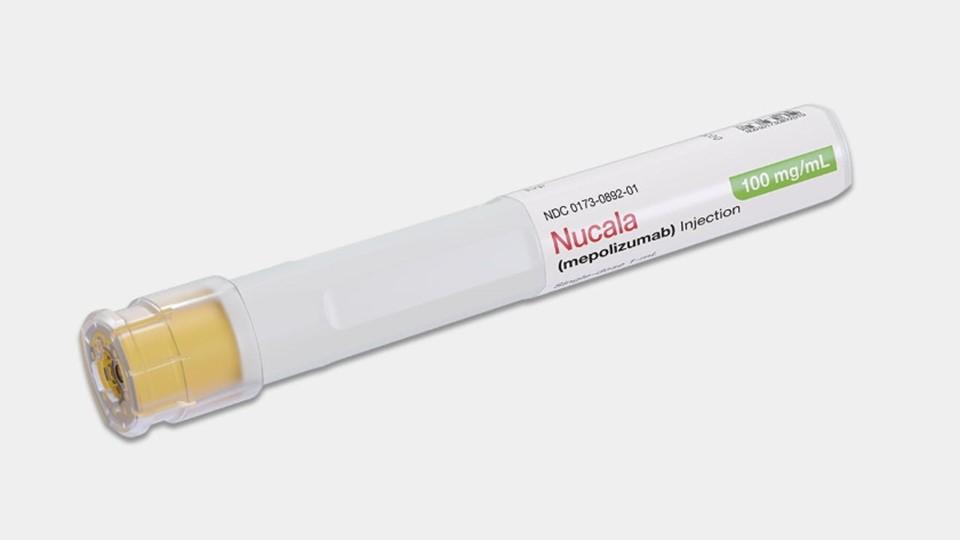GSK says Nucala hits the target in new COPD trial

GSK's severe asthma therapy Nucala could find a new lease of life as a treatment for chronic obstructive pulmonary disease (COPD) after showing a clear benefit in a phase 3 trial.
The headline result from the MATINEE trial of IL-5 inhibitor Nucala (mepolizumab) in adults with COPD was a statistically significant reduction in the annualised rate of moderate or severe exacerbations compared to placebo that GSK said was "clinically meaningful." In the study, Nucala was added to inhaled maintenance therapy for COPD.
GSK has been studying Nucala in COPD for some time, and in 2017 reported mixed results for the drug in two earlier phase 3 trials called METREX and METREO.
METREX involved patients with a range of eosinophil levels and showed a statistically significant improvement for Nucala versus placebo on exacerbation rates. However, in METREO – which focused on patients with higher levels only – the difference between the two arms was not significant.
The company decided to file for approval regardless, but the FDA declined to approve the new indication in 2018, following the advice of an advisory committee, which found that GSK had not proved efficacy. It seems MATINEE will allow GSK to try its luck again.
The size of the improvement over placebo – which reportedly extended for up to two years in the trial – won't be available until the study is presented at a future medical congress, but is strong enough to warrant discussions with regulators about extending the indications for Nucala, according to the pharma group. It has previously suggested approval for COPD could come in the US in the first half of next year.
Nucala has been approved to treat severe eosinophilic asthma for almost a decade, and in the interim has had its label extended to include chronic rhinosinusitis with nasal polyps, eosinophilic granulomatosis with polyangiitis, and hypereosinophilic syndrome.
The drug remains one of GSK's top products, with sales of £856 million ($1.1 billion) in the first half of this year, up 15%. COPD could open up a massive new market for the drug, which still has several years of patent life left before it could face biosimilar competition.
The lung disease affects more than 300 million people globally, with up to 40 of patients exhibiting type 2 inflammation characterised by a raised blood eosinophil count, which would make them suitable for treatment with Nucala.
Elevated eosinophil levels are associated with more severe COPD and a higher rate of exacerbations, the sudden flare-ups in symptoms that signal the progression of the disease and can lead to hospitalisation.
The MATINEE data comes at a time when options for COPD are on the up, after a decade with no new therapies.
In July, the European Commission became the first regulator worldwide to approve Sanofi and Regeneron's big-selling IL-4 and IL-13 inhibitor Dupixent (dupilumab) as a treatment for the progressive lung disease, shortly after Verona Pharma got the go-ahead from the US FDA for its PDE 3/4 inhibitor Ohtuvayre (ensifentrine).
Dupixent – which is due for a verdict from the FDA as a COPD therapy later this month – was cleared for adults with uncontrolled COPD with raised blood eosinophils, while Ohtuvayre can be used in all patients regardless of eosinophil levels.












